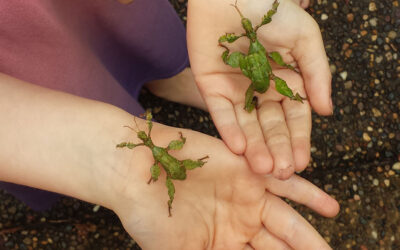In just a matter of a few weeks, children’s routines have changed dramatically. Along with the likelihood that they’re no longer going to school or day care, they’re unable to socialise with their friends too. What changes should you expect from your child’s behaviour during lockdown, and what can you do to help?
Clinical psychologist Dr Aliza Werner-Seidler, from the Black Dog Institute, says socialising with friends is an incredibly important aspect of children’s lives, especially for teenagers, and should be encouraged. Realising it will probably buck the trend of many home rules, she says special allowances could be given to teens so that they can socialise with their friends digitally – as long as they abide by some rules.
“Social media and sensationalised news outlets and commentary are probably not the best things for them to spend time on at the moment as they can be full of incorrect information and increase anxiety around the coronavirus outbreak,” she says.
“Of course, we want them to get a good night’s sleep, so they need to switch off at a reasonable hour. But allowing teens to chat online with their friends during this time is incredibly important, and parents should encourage them to do so.”
Friends are important
Recognising that friends are among the most important people in a teen’s life, Dr Aliza says allowing them lots of contact with each other will help teens process and support each other in the anxiety and stress caused over this time.
“Their routines are drastically changing, so maintaining existing connections is one way of maintaining some sense of normalcy. It’s also important to focus on their interests and see if they can adapt them for an online experience. If they enjoy playing guitar, encourage them to do it online with their friends and learn new songs that way.”
When it comes to younger children, Dr Aliza says parents can expect behavioural changes as they pick up on their parent’s feelings of anxiety and worry more than we realise. They’re also likely to be confused about their routines changing.
“They don’t have the social skills to tell you what they’re feeling so you’re more likely see changes in their behaviour than what they’re saying. Younger kids will be looking up to their parents to know which boundaries have changed and which ones are still in place.”
Advice for parents with teens
Accept they cannot fully process risk in the same way as adults.
Many teens won’t stay in just because you tell them there’s a risk to their health if they go out. It can be frustrating, but this has been scientifically shown because their brains haven’t finished developing yet. Their prefrontal cortex – the part that deals with decision-making and risk assessment, doesn’t stop developing until they’re young adults. Try to understand this when talking to them. They’re not trying to be rebellious, they just can’t always understand. It’s important to be firm, but you can try to reason with them, too.
Relationships don’t have to stop because you can’t see each other.
Many teenagers are going to struggle knowing they can’t see their boyfriends/girlfriends while they’re staying at home in isolation. It’s tricky, but it is also a great opportunity to encourage them to develop the social foundations of a relationship. This return to traditional ideals may not be popular now but might benefit teens with their relationships in the long run.
Advice for parents with younger kids
Establish a new routine.
Children thrive off routine. They want to know what’s happening and that their parents are still in control. Try to work out how your new routine will work and then stick to it. Most importantly, explain your new routine to your child so they know what to expect next. After a bit of time with a new routine, you’ll be surprised by how well kids can adapt.
Stick to your rules
Obviously, you’ll want to be compassionate towards your children over this time. You can do this by giving them lots of cuddles and reassuring them. But try to stick to your discipline and rules as much as possible. If they are displaying challenging behaviours, it’s an opportunity for you to let them know that things haven’t changed at home and the rules still apply.
Aliza Werner-Seidler is conducting a study on adolescents who experience sleep problems called the Dream On Study. She is looking at ways to help 12 to 16-year-olds with their sleep which has the potential to reduce depression and anxiety, as well as improve wellbeing. More information is here.
RELATED:
How to talk to your kids about the coronavirus


